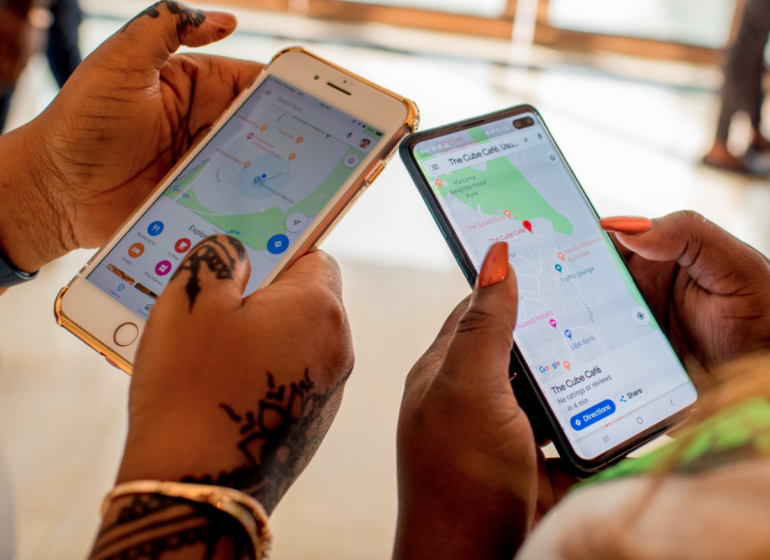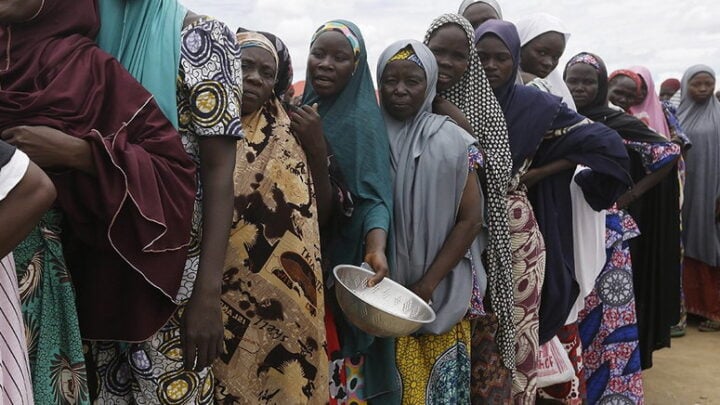The Nigeria Centre for Disease Control (NCDC) has released an advisory for vulnerable people and those considered to have a high risk of complications from COVID-19.
In the advisory, the agency said people over 50 years and those with preexisting medical conditions such as diabetes are at a higher risk of COVID-19 complications.
“It is important that people with underlying health immuno-compromised conditions take extra precautions to protect themselves, due to their weakened immune system which puts them at a higher risk of infection,” the advisory read.
Who is vulnerable?
Advertisement
According to NCDC, the category of people considered vulnerable and at high risk of COVID-19 complications include persons aged 50 years and older (with or without underlying illnesses); persons with critical underlying medical conditions such as diabetes, cancer, lung disease, liver disease, moderate to severe asthma, etc; other persons who have been assessed as vulnerable, based on clinical assessment.
How do I protect myself from COVID-19?
The NCDC said those in this category can protect themselves or loved one in the vulnerable category by:
Advertisement
- Using non-contact greetings (even with family members).
- Washing hands regularly with soap and water or using an alcohol-based sanitizer, if no water and soap is available.
- Avoiding contact with anyone who is showing symptoms of COVID-19.
- Avoiding non-essential outings and visitors. If you must go out, always wear a face mask in public and maintain at least 2 metres (5 feet) of physical distance between yourself and other individuals.
- Ensure you have an adequate supply of the medication needed to manage your condition while you stay at home.
- If possible, consider having your medicines, groceries and essential items delivered to your home by a designated family member, friend, or delivery person who complies with recommended measures including physical distancing, face mask use and frequent hand hygiene.
- Avoiding large gatherings and crowded spaces such as open markets, crowded supermarkets, and pharmacies.
- If you have to work, discussing and agreeing your options with your employer to enable you work from home or make changes within the office space to keep you and your colleagues protected.
How to stay protected when living with others
The following preventive measures should be followed if you live in a shared house or flat:
- Ensure that if you do share a toilet and bathroom with others, they are cleaned after each use.
- Where possible, consider drawing up a rota for bathing, and you use the bathroom first at the start of each day.
- Encourage frequent handwashing with soap and water by all other household members and disinfect frequently touched surfaces e. g door handles, light switches, TV remotes etc. throughout the day.
- Keep shared spaces well ventilated and minimise the time spent in shared enclosed spaces, such as kitchens, bathrooms and sitting areas.
- Where possible, sleep in a different bed and endeavour to maintain physical distancing even within the household.
- Do not share towels and bedding or use commonly shared household items including cutlery, drinking cups etc.
What should you do if you develop symptoms of COVID-19?
- You are advised to immediately call your state helpline and a close family member if you develop symptoms of COVID-19, or believe you have been a close contact of a confirmed case.
- The state ministry of health supported by the Nigeria Centre for Disease Control (NCDC) will arrange for sample collection, testing and NCDC Toll-free Number: 0800 9700 0010 SMS: 0809 955 5577 WhatsApp: 0708 711 0839.
- If you live alone, it is important that you keep a folder on your medical condition (if any), with emergency contact details, blood genotype, blood group, a list of the medications you are taking (including dose and frequency) and details of any medication you might react adversely to.
- If your COVID-19 test comes out positive, your care should be managed in a designated state health facility, enabling your health to be constantly monitored, especially if you have an underlying health condition.
What can you do to keep your spirits up during this period?
Advertisement
To keep your spirits up during this period, below are some recommended activities:
- Spend time in open areas when there are fewer people around.
- Use support you might have through your friends, family and other networks to share your highs and lows.
- If you live alone, use your phone, teleconferencing platforms etc. to stay socially connected.
- Ensure you stay physically active, staying hydrated and eat a healthy diet with fruit and vegetables.
- Use your medications as prescribed by your doctor and make arrangements with your health facility to ensure your routine/essential medical appointments are not disrupted.
How do I stay safe if I am caring for a vulnerable person?
If you are caring for a vulnerable person, ensure you also take adequate measures to reduce the risk of getting infected or infecting the person you are caring for. Some of the measures you can take include:
- Wearing a face mask if caring for a person with a chronic medical condition.
- Washing your hands regularly with soap and water or use an alcohol-based sanitizer, if no soap and water is available.
- Covering your mouth and nose with a tissue or use your bent elbow when you cough or sneeze.
- Dispose used tissue in the bin immediately and wash your hands afterwards.
- Whenever possible, maintain physical distance of at least 2 metres (5feet), when personal contact is necessary.
- Staying home if you are unwell or are a close contact of a confirmed COVID-19 case. If within the same household, adhere strictly to self -isolation guidelines.
- Reducing the need to go out as much as possible, and when you go out maintaining a physical distance from others, ensuring you wear a face mask.
Advertisement
Add a comment






